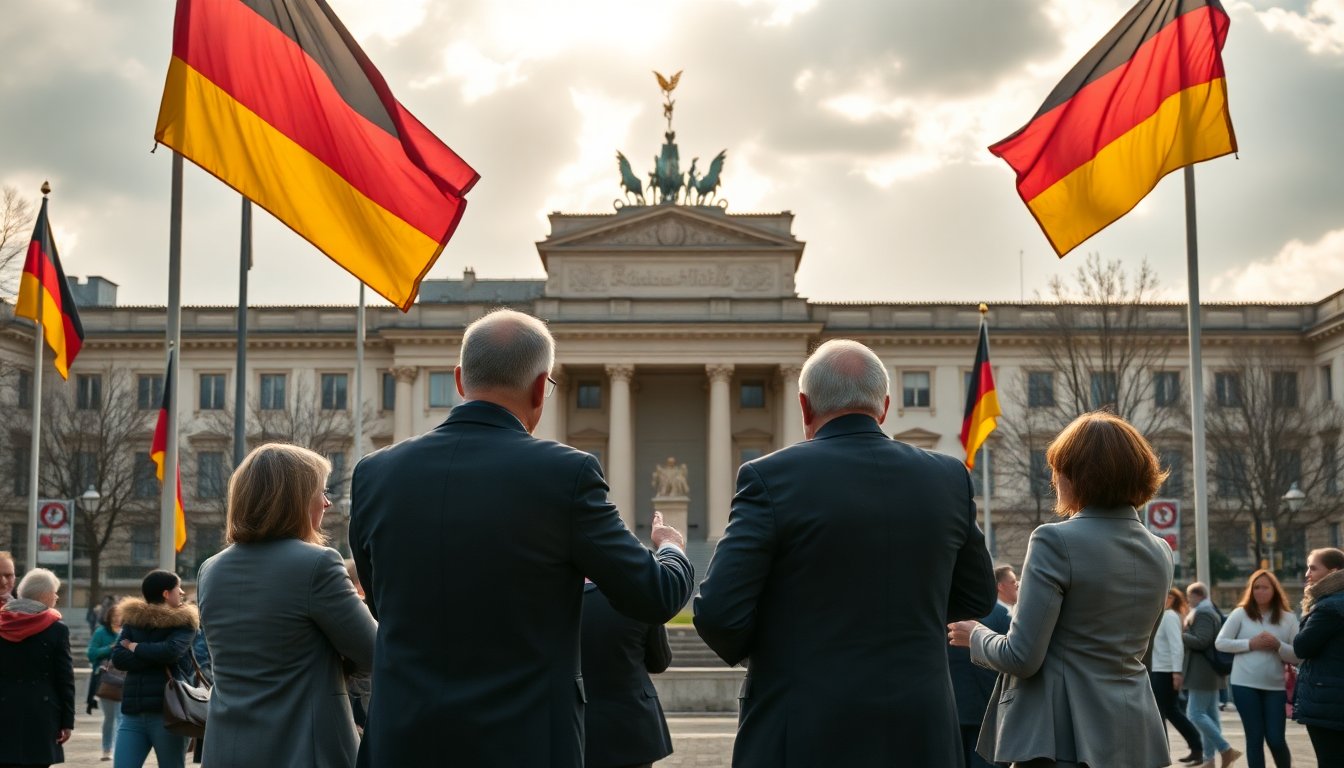Table of Contents
As the political landscape in Germany evolves, it is important to reflect on the changes following the dissolution of the traffic light coalition. With Chancellor Friedrich Merz and Vice Chancellor Lars Klingbeil leading the new black-red coalition, the government promised stability but now faces increasing challenges.
This article examines the underlying tensions within the coalition, the criticisms directed at key leaders, and the implications of recent events on Chancellor Merz’s governance style. These elements create a complex picture of the current political dynamics in Germany.
Coalition dynamics: A year in review
In evaluating the current state of the black-red coalition, it is crucial to address the sources of friction that have emerged over the past year. The coalition, which sought to unite the Christian Democratic Union (CDU) and the Social Democratic Party (SPD), has encountered significant strains.
The initial promise of cooperation is increasingly challenged by internal dissent and public scrutiny.
Notably, tensions have arisen over foreign policy, particularly with Foreign Minister Johann Wadephul. His recent comments regarding Syria sparked outrage within the union, igniting debates about the coalition’s unity.
This incident has underscored divisions within the party and raised questions about the effectiveness of current leadership.
Public perceptions and internal conflicts
The public’s perception of the coalition is shaped by various factors, including ongoing struggles to address pressing issues such as economic stability and public health.
Recent sessions of the Bundestag, especially discussions led by the Corona Enquete Commission, have highlighted deep divisions among members. The commission’s focus on fundamental rights and state interventions reveals a contentious atmosphere during discussions.
As Chancellor Merz navigates these challenges, he faces internal dynamics within his party.
The CDU is grappling with its response to the rising influence of the Alternative for Germany (AfD). With heated internal debates, the party’s strategy may significantly impact its future trajectory and stability.
International relations and economic challenges
Beyond domestic concerns, the black-red coalition confronts significant international challenges. Chancellor Merz’s recent visit to Turkey, where he engaged with President Recep Tayyip Erdoğan, underscores the delicate balance of addressing foreign relations while managing domestic pressures. Discussions centered on security and economic cooperation, highlighting the risks associated with diplomatic engagements amid rising tensions.
The coalition is also exploring ambitious plans for economic recovery. A proposed pension package aimed at stabilizing retirement benefits has raised questions regarding its feasibility. While the initiative seeks to ensure a stable pension system, concerns linger about the sustainability of these promises.
Looking ahead: The future of German governance
As the coalition faces these multifaceted challenges, it is crucial to consider the implications for future governance in Germany. Recent turmoil within the CDU regarding its stance towards the AfD reflects a broader struggle for identity and direction within the party. This internal conflict raises questions about the party’s cohesion and its ability to unite under a common purpose.
Moreover, as public sentiment shifts, the coalition’s leaders must navigate a landscape where public trust is increasingly fragile. Ensuring transparency and accountability will be essential for restoring faith in the government. The upcoming political decisions will not only shape the future of the coalition but also define the broader trajectory of German politics in the years ahead.





